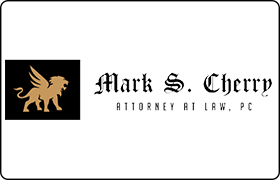 Runnemede Collection Lawyers, New Jersey
Runnemede Collection Lawyers, New Jersey
Sponsored Law Firm
-
 x
x

Click For More Info:
-
Mark Cherry Law
385 Kings Highway North Suite 101 Cherry Hill, NJ 08034» view mapBankruptcy & Debt Where Every Client Matters
We want our clients to be confident and secure knowing we are a law firm ready to take on the fight and challenge with them.
800-824-6431
Lawyers
1-2 of 2 matches
Business Organization, Civil Rights, Collection, Employment
Collection, Litigation, Civil Rights, Federal Trial Practice




 Mark Cherry Cherry Hill, NJ
Mark Cherry Cherry Hill, NJ AboutMark Cherry Law
AboutMark Cherry Law Practice AreasSpecializations
Practice AreasSpecializations